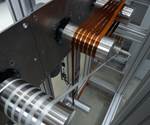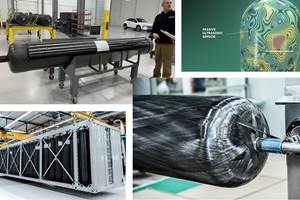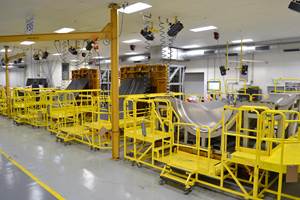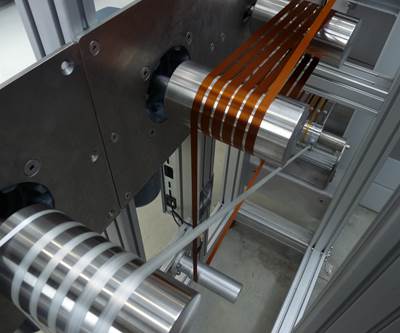EuCIA adds new glass fiber data to Eco Impact Calculator
The European Composites Industry Association’s Eco Impact Calculator is a free life cycle assessment tool to calculate a composite part’s ecological footprint.
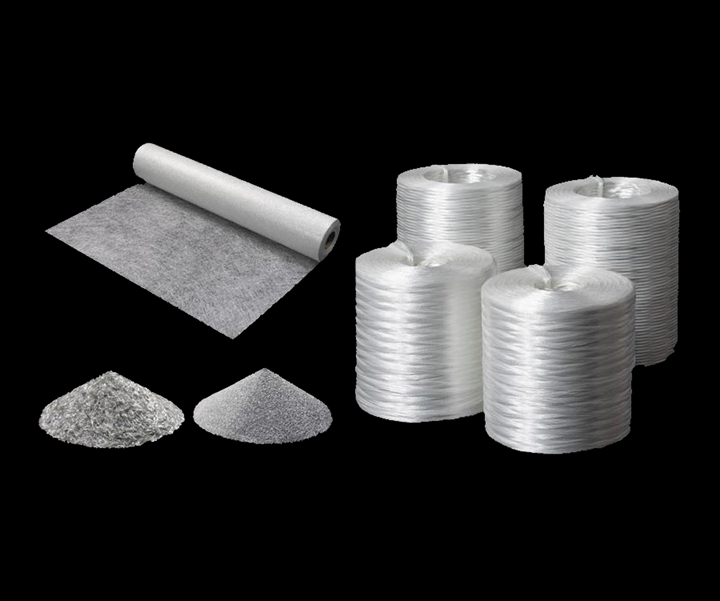
Source | Nippon Electric Glass via EuCIA
The European Composites Industry Association (EuCIA, Brussels, Belgium) has announced the addition of new glass fiber data to its Eco Impact Calculator, its online tool which enables composites companies to calculate the environmental impact associated with the production of their products.
The Eco Impact Calculator can be accessed free of charge at ecocalculator.eucia.eu, and is a life cycle assessment (LCA) tool that is regularly updated to incorporate the latest advances in composite materials and process technologies. The new glass fiber data follows the availability of new data for carbon fibers announced in February 2020.
GlassFibreEurope, the Brussels-based European Glass Fibre Producers Association, has produced a new, EU-average, peer-reviewed set of LCA data for glass fiber products based on the most recent industry manufacturing practices. This data, which includes multi-end and direct roving, dry chopped strand and for the first time glass fiber mat products, has been entered into the ecoinvent databases. With the assistance of EY Climate Change and Sustainability Services (EY CCaSS) in the Netherlands, EuCIA has also imported this data into the Eco Impact Calculator. EuCIA has decided to maintain both the existing and new data sets as material choices in the tool to allow the industry to transition at its own pace.
The Eco Calculator calculates the environmental impact of products “from cradle to gate,” including raw materials, transport, processing and waste generation to the point of sale.
"GlassFibreEurope is committed to demonstrating glass fiber’s contribution to sustainable development, innovation and quality of life,” says Dr. Axel Jorns, permanent representative of CAA – Carl-August Advisory srl, and secretary general of FibreGlass Europe. “The European glass fiber industry has made a concerted effort to provide the most up-to-date industry-based LCA data and we are excited that this is now available to use through EuCIA's Eco Calculator.”
“EuCIA strongly believes that sustainability and the circular economy are key to the future development of the composites industry,” says EuCIA’s President, Roberto Frassine. “Glass fiber is the most widely used reinforcement for composites and this valuable new data from GlassFibreEurope represents the state of the art of the glass fiber industry. The Eco Calculator is a ‘living’ tool and we will continue to review the database and add to it as new and improved technologies enter the market.”
EuCIA’s Eco Impact Calculator calculates the eco footprint of composite parts using a transparent and uniform sector methodology for processes following ISO 14.040/044. The Eco Calculator calculates the environmental impact of products from cradle to gate, including the raw materials, transport, processing and waste generation up to the point of sale. The calculation of consecutive manufacturing processes is possible as well as modified materials. Users do not need any in-depth knowledge of LCA techniques to use the tool and the data can be exported in the form of an Eco Report to allow full life cycle calculations.
The Eco Calculator incorporates a pre-defined set of materials and processes, based on data EuCIA has collected over the past four years. Users are also able to enter their own data to generate a more precise result for their individual products and processes. The materials and processes included in the tool are under continuous review for quality and consistency, and new data is regularly added to extend and improve its scope and accuracy.
Organizations wishing to contribute to the further development of the Eco Calculator are invited to contact EuCIA.
Related Content
Hexagon Purus Westminster: Experience, growth, new developments in hydrogen storage
Hexagon Purus scales production of Type 4 composite tanks, discusses growth, recyclability, sensors and carbon fiber supply and sustainability.
Read MorePlant tour: Middle River Aerostructure Systems, Baltimore, Md., U.S.
The historic Martin Aircraft factory is advancing digitized automation for more sustainable production of composite aerostructures.
Read MoreNatural fiber composites: Growing to fit sustainability needs
Led by global and industry-wide sustainability goals, commercial interest in flax and hemp fiber-reinforced composites grows into higher-performance, higher-volume applications.
Read MorePlant tour: Arris Composites, Berkeley, Calif., U.S.
The creator of Additive Molding is leveraging automation and thermoplastics to provide high-volume, high-quality, sustainable composites manufacturing services.
Read MoreRead Next
EuCIA adds thermoplastics processing data to eco impact calculator
The Eco Calculator is constantly evolving to meet industry needs and this latest development follows the recent addition of data for core materials for RTM and vacuum infusion processes.
Read MoreEuCIA announces addition of new carbon fiber data to Eco Impact Calculator
The European Composites Industry Association’s Eco Impact Calculator is a free life cycle assessment tool to calculate a composite part’s ecological footprint.
Read MoreAll-recycled, needle-punched nonwoven CFRP slashes carbon footprint of Formula 2 seat
Dallara and Tenowo collaborate to produce a race-ready Formula 2 seat using recycled carbon fiber, reducing CO2 emissions by 97.5% compared to virgin materials.
Read More
.jpg;width=70;height=70;mode=crop)

